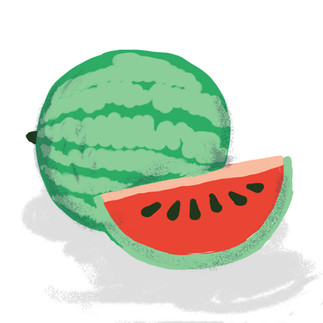April 13, 2025
- Sheryl and Dan Malin
- 2 days ago
- 8 min read
Hello Followers,
Welcome Sunday!
Do you have any outside plans?

Dan and I will be walking in our favorite park, where I will stop to hug a tree.
You will be amazed at how much a simple act like hugging a tree can do wonders for your health.
It is like, when you give that tree a big squeeze, your stress just starts to melt away.
Why?
Because it lowers your cortisol levels, making you feel calm and collected.
And guess what?
Your blood pressure might even take a dip for the better, all thanks to those stress hormones packing their bags.
But wait, there is more.
Your immune system gets this nice little boost from an uptick in white blood cells, so you are better at fighting off those annoying illnesses.
And if you are dealing with inflammation, hugging a tree could be your new go-to.
It is all thanks to the phytoncides in trees that have these cool anti-inflammatory properties.
Plus, you will find yourself sleeping better, feeling more at peace, and your mood?
Oh, it gets a lift too, thanks to an increase in serotonin, and those feel-good vibes.
So, yes, there are a whole bunch of benefits just waiting out there for you to discover.
Who knew, right?

Nature is not a place to visit. It is home.
We are all connected to the earth, and nature should be a place where we feel safe,
grounded, and at peace.
There is pleasure in the pathless woods.
Sometimes, peace comes when we leave the familiar and explore the untamed wilderness.
Just living is not enough.
One must have sunshine, freedom, and a little flower.
Nature, with its flowers and sunshine, offers us the perfect balance for a peaceful life.
Nature is the art of God.
The earth is a masterpiece, and every aspect of it holds a message of peace and harmony.
Nature is not just something we see, it is something we feel deeply within.
True peace comes from a deep connection to nature, where we feel it not only with our eyes but with our entire being.
Trees are one of the best gifts natures has given us.
Hug a tree today and embrace nature.

Help protect your brain against cognitive decline,
memory loss, cell damage, and more with these foods.
Here is a cool fact: Even though your brain is only about 2% of your overall body weight, it burns about 20% of the calories your body uses in a day.
So, food is literally fuel for your brain.
Certain foods also provide many key nutrients that your brain needs to work its magic.
These fourteen tasty choices are some of the best brain boosters you can add to your diet.
Research shows that they may help improve cognitive function.
That is an umbrella term for all the amazing things your brain does, such as learning,
remembering, problem-solving, decision-making, and more.
Watermelon
Who knew that this summer treat had such power?
Watermelon is packed with antioxidants, including lycopene and beta carotene, which may help prevent cognitive decline.
These nutrients also give watermelon its red color.
So, the redder the melon, the more nutritious it is!
Eggs
Eggs have plenty of brain-boosting nutrients, including B vitamins and antioxidants.
The yolks are also an excellent source of choline.
This lesser-known nutrient is key for memory and cognition.
It is a building block of acetylcholine, an important neurotransmitter that sends messages throughout the brain and nervous system.
Studies have linked higher choline intake to better cognitive function in older adults.
Worried about the cholesterol in those yolks?
The American Heart Association says an egg a day can be part of a healthy diet, and it does not increase heart disease risk in most healthy people.
Chicken
Is roast chicken one of your go-to dinners?
You will be happy to know that chicken has brain health benefits.
It is rich in vitamins B6 and B12 as well as choline.
All these nutrients play an important role in brain health and protecting your brain cells from damage.
Salmon
Add fish to your brain health grocery list, fatty fish, that is.
This includes:
Herring
Mackerel
Salmon
Sardines
They are all good sources of omega-3 fatty acids.
There are three types of omega-3s: ALA (alpha-linolenic acid), DHA (docosahexaenoic acid), and EPA (eicosapentaenoic acid).
DHA is an important building block of brain cells.
Several studies have found that people who eat more omega-3s from fish have a lower risk of developing Alzheimer’s disease, dementia, and other cognitive issues.
Walnuts
What if you do not eat fish?
You can also get one type of omega-3 fatty acid, ALA from plant-based sources such as nuts, seeds, and vegetable oils.
And walnuts are one of the top nut sources.
Research shows that eating 1 to 2 ounces of walnuts a day can improve cognitive function.
Walnuts also contain antioxidants that can help fight brain-damaging inflammation.
Grab a handful for a snack, sprinkle them over yogurt, or add them to a salad.
Seaweed
A growing body of evidence suggests that eating seaweed may have brain health benefits.
It is a plant-based source of brain-boosting DHA omega-3 fatty acid.
It is also rich in magnesium, a key nutrient for protecting the brain from the negative effects of stress.
And seaweed is a good source of folate, which is important for brain development from conception to old age.
You can buy edible seaweed at the supermarket.
Quinoa
Protein-rich quinoa is high in the amino acid lysine, which may help regulate stress and anxiety.
Amino acids are the building blocks of protein, needed by your brain and every other part of your body.
Your body can make some of them, but others you must get from eating food, which makes them essential.
Quinoa is one of the few plant-based complete proteins, meaning it contains all the essential amino acids.
That is why it is a great choice for vegetarians.
It is also a super delicious add-on to a salad or as a stand-alone side plate if you are a meat eater too!
Sage
If you are a spiritualist, you may not want to burn all your sage at once.
Sage has been used for its medicinal qualities for thousands of years, and recent research backs that up.
Studies have shown that sage may improve memory recall and help delay cognitive decline.
This benefit may be due to plant nutrients called terpenes that are found in sage and other herbs in the same family, including rosemary and peppermint.
Sesame seeds
Sesame seeds contain plant nutrients called lignans, which may help prevent age-related cognitive decline.
Try adding sesame seeds and other small but high-impact foods, (such as flaxseed to your dishes.
It is a simple, tasty way to put a little brain boost in every bite.
Za’atar
Another small but mighty seasoning?
This Middle Eastern spice blend combines sesame seeds with sumac and dried oregano, thyme, and marjoram.
It has been around since biblical times, and it has long been thought to have medicinal and brain-boosting powers.
Recent research may back that up.
Both thyme and oregano contain carvacrol.
This compound has been shown to boost levels of dopamine and serotonin, mood-regulating hormones in mice.
Lentils
Beans and lentils are high in the B vitamin folate, which helps form DNA in the body.
This nutrient is essential for fetal brain development during early pregnancy.
In fact, the Centers for Disease Control and Prevention urges all women who are pregnant or trying to conceive to take folic acid supplements.
This can prevent birth defects of the baby’s brain and spine.
Studies suggest that folate and folic acid, a synthetic form of folate found in supplements, may be important for maintaining good brain function in older adults too.
It is needed to break down homocysteine, an amino acid.
High blood levels of homocysteine have been linked to Alzheimer’s disease and other forms of dementia.
Butternut squash
Winter squashes such as butternut squash, acorn squash, and pumpkin are full of beta carotene, a type of carotenoid.
Recent research shows that carotenoid supplements help improve memory and verbal skills.
Butternut squash also serves up a healthy dose of:
Antioxidants
Folate
Niacin (a vitamin B needed to convert food into energy)
Vitamin C
Fermented foods
If you are a lover of international fare Greek, German, Korean, or Chinese food, anyone?
You will love these brain-healthy options.
Fermented foods support healthy bacteria in your gut.
Some examples:
Kimchi
Kombucha
Sauerkraut
Yogurt
What is the gut-brain connection?
Your gut and brain are actually closely linked.
They talk to each other through your nervous system.
And many brain chemicals, including serotonin, are made in your gut with the help of the bacteria in there.
Scientists are still learning about the many ways that our gut bacteria influence our overall health, including brain health.
But we do know that fermented foods can change the makeup of the bacteria in your gut in positive ways.
Bottom line: Do you need to eat all these foods at every meal to maximize your brain health?
Absolutely not.
Think of this list as inspiring by your next trip to the grocery store and delicious, home-cooked meal.
Pick an ingredient or three!
That grabs your attention and starts cooking your next brain-healthy treat.
It is helpful if you want to get more grounded, if you want to share your love for trees in general or one specific tree, or if you just want to feel more connected to nature.
The video begins with a short relaxation introduction followed by a guided meditation on tree hugging.
The meditation itself is 14 minutes long and after that the background music will continue for 10 minutes for a moment of optional self-meditation before the singing bowl marks the end of this video.
Until Monday, when you embrace the tree and celebrate its beauty,
it becomes an even stronger connection with Mother Earth.
SUPER GUT YOGURT
Before I begin with the recipe, Dan and I would like to thank three individual people that inspired us to seek the knowledge to share with you.
Thank you to our Functional Medicine Physician, Eduardo Castro MD for inspiring us to read the book SUPER GUT.
And to William Davis, MD for giving Dan and I knowledge to keep our guts healthy.
And to Ultimate Health Solutions for the machine to ferment the yogurt.
Here is the recipe for making coconut milk yogurt with L. Reuteri.
INGREDIENTS
1 (13.5 ounce) can coconut milk
¾ teaspoon guar gum
Two tablespoons sugar
One tablespoon raw potato starch
1-2 tablespoons L reuteri yogurt, capsuls, curds, and/or whey or
10 Gastrus tablets, crusted.
DIRECTIONS
1. In a small or medium-sized saucepan, heat coconut milk over medium heat to 180F or until it just begins to boil, remove from heat.
2. Allow it to cool for 5 minutes.
3. Add guar gum, sugar, and potato starch to the cooled coconut milk and blend with stick blender or pour these ingredients into a blender; blend for a minimum of 1 minute or until the mixture thickens to the approximate thickens of heavy cream.
4. Allow the mixture to cool to 100F or room temperature.
5. Then mix in the L. reuteri yogurt.
6. Ferment for 48 hours at 100F.
7. Cool in the refrigerator overnight.
8. Add fruit and whipped cream with granola
FOR MORE INFORMATION ON SUPER GUT
BON APPETIT!











































































































Comments